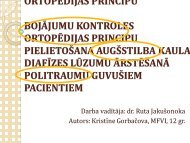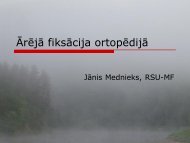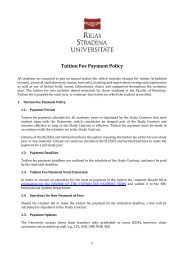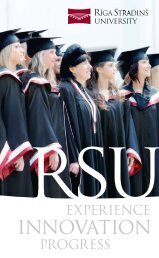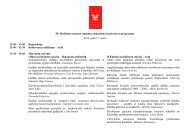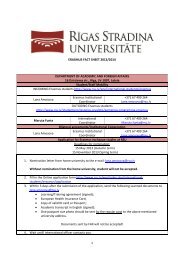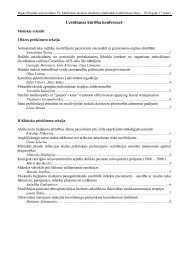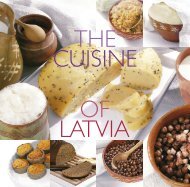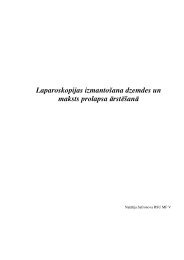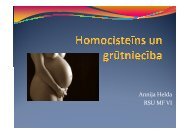History of Latvia: a Brief Survey
History of Latvia: a Brief Survey
History of Latvia: a Brief Survey
- No tags were found...
You also want an ePaper? Increase the reach of your titles
YUMPU automatically turns print PDFs into web optimized ePapers that Google loves.
A monument dedicated tothe 1905 Revolution.A rally in Dundaga (western <strong>Latvia</strong>) in October 1905.social and political situation. On 13 January 1905, the LSDSP declared a general strike. About20,000 factory workers participated in a demonstration on the streets <strong>of</strong> Rīga. A widespreadmovement took hold, and demands were made for improved social conditions and morepolitical rights. In rural areas the movement was aimed against the local aristocrats — theGerman landed gentry — who owned most <strong>of</strong> the land and who had usurped local power.In the eyes <strong>of</strong> many <strong>Latvia</strong>ns the 1905 Revolution was largely directed against the BalticGerman aristocracy, and many manors in the countryside were destroyed, prompting thegovernment authorities to send punitive expeditions to Baltic provinces.Later, in history books, these events <strong>of</strong> 1905 were called the ‘<strong>Latvia</strong>n Revolution’. During thisrevolution several nationally oriented <strong>Latvia</strong>n Social Democrats publicly voiced, for the firsttime, the necessity to unite all <strong>Latvia</strong>n-inhabited regions into an autonomous state — <strong>Latvia</strong>.This idea was especially popularised by Miķelis Valters (1874-1968), the nationally orientedleading ideologue <strong>of</strong> the Social Democratic Union, who opposed the lack <strong>of</strong> rights andundemocratic socio-political order <strong>of</strong> the Russian Empire.The decade after the 1905 Revolution displayed a mix <strong>of</strong> old and new political realities. TheBaltic German aristocracy agreed to a modest reform <strong>of</strong> their self-government, but it wasalready too late. Many <strong>Latvia</strong>ns now called for democratisation and the idea <strong>of</strong> nationalautonomy arose.Miķelis Valters (1874-1968), originator<strong>of</strong> the idea <strong>of</strong> independent <strong>Latvia</strong>nstatehood and one <strong>of</strong> the founders <strong>of</strong>the Republic <strong>of</strong> <strong>Latvia</strong>.21



